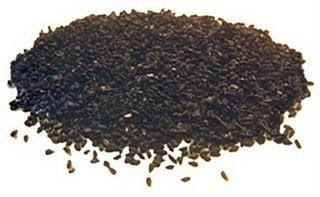

Nigella Sativa discovered in Tutenkhamen’s tomb, implying it played an important role in Egyptian practices. Though its exact role in Egyptian culture is unknown, we do know that items entombed with a king were carefully selected to assist him in the after life. The most primitive written reference to black cumin is found in the book of Isaiah in the Old Testament. Isaiah contrasts the reaping of black cumin with wheat (Isaiah 28: 25, 27 nkjv). Easton’s bible dictionary clarifies that the Hebrew word for black cumin, ketsah, refers to without doubt the Nigella sativa. In the Unani Tibb system of medicine, black cumin been regarded as a valuable remedy in a number of diseases. Ibn Sina (980-1037 A.D.), most famous for his volumes called ‘The Canon of medicine’ regarded by many as the most famous book in the history of medicine, refers to black cumin as the seed that stimulates the body’s energy and helps recovery from fatigue and dispiritedness and several therapeutic effects on digestive disorders, gynecological diseases and respiratory system have been ascribed to the seeds of Nigella sativa (Ave-sina). It is also included in the list of natural drugs of ‘Tibb-e-Nabwi’, or prophetic medicine, according to the tradition “hold onto the use of the black seeds for in it is healing for all diseases except death” (Sahih Bukhari vol. 7 book 71 # 592). The seeds have been traditionally used in the middle east and South east Asian countries to treat ailments including Asthma, Bronchitis, Rheumatism and related inflammatory diseases, to increase milk production in nursing mothers, to promote digestion and to fight parasitic infections. Its oil has been used to treat skin conditions such as eczema and boils and to treat cold symptoms. The many uses of black cumin as earned for this ancient herb the Arabic approbation ‘Habbat-ul-barakah’ meaning the seed of blessing. Dr. M. Tariq Salman 18:27, 26 January 2006 (UTC)
Petikan dari laman Habbat Barokah

No comments:
Post a Comment